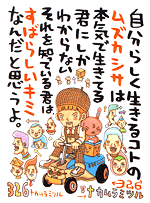According to Lengel, “(Wikipedia) is an encyclopedia compiled by the voluntary contributions of hundreds of writers and editors. Anyone can write an article and post it to the Wikipedia; anyone else can come along later and edit the article. It’s a kind of open, voluntary, work in progress. As such, it’s the most up-to-date encyclopedia you’ll find”(2006, para. 6). Today, Wikipedia is the ninth most popular Web site in the U.S.. (Wolverton, 2007). However, it has been argued about for a long time in the academic field. The controversies are whether students should be allowed to use Wikipedia for their projects or paper and whether the academic authorities should be tolerant of it. Then there are some problems here for the use of Wikipedia; anyone can write an articles and edit them freely, but we never know who wrote it, we also cannot figure out whether the information is correct or not and whether the copyright infringement or defamation will occur.
In the academic field, we should not use Wikipedia because we will infringe the copyright, anyone can post and edit an article and it will be inaccurate.
First of all, because of the copyright infringements, we should not use Wikipedia as a reference. Wikipedia is the free encyclopedia, so there might be something wrong in articles. In fact, a lot of articles have been deleted because of the invasion of the copyright. Further, nobody is responsible for editing the articles, so it can be one of the methods of Internet vandalism (Wolverton, 2007). Therefore, we think about the use of Wikipedia before starting our paper.
Second, we never are able to figure out who added the articles to Wikipedia. This is because anyone can write, post and edit the articles. For example, although there is wrong information, it will be never deleted if someone reports it. Further, Lengel states that
Wikipedia is unmediated and clearly not all of it definitive (2006). The problem is the anonymity. Moreover, there are no watchers or censors that verify the information immediately. Consequently, we have to be careful if we look up information from Wikipedia.
Finally, Wikipedia may be inaccurate, so we cannot use the information from Wikipedia on our papers or projects. For example, a prestigious liberal arts school in Vermont forbids that their students cite the sentences from Wikipedia (Byers, 2007). Some educators claim that Wikipedia is not suited for the academic situation. This is because, in fact, all publications are checked or previewed before distributed, but we anyone can post and edit the articles freely on Wikipedia (Wolverton, 2007). It will bring some problems for us. Therefore, we cannot use Wikipedia in public because our papers or projects must be aliared with truth.
Since Wikipedia has been born, it has give us a life of accessible information. We can get the information for free, add articles, edit the articles quickly and cite it for daily life. However, it has some problems, especially in the academic field such as the copyright infringements, free posting and editing policy and the inaccuracy of its articles. It means Wikipedia is no longer useful in the academic field. This is because academic papers and projects need authority and accuracy. Therefore, we should avoid using Wikipedia on our academic assignments.
Reference
Byers, M. (2007, March 8). from Controversy over use of Wikipedia in academic papers arrives at Smith. Sophian. Smith College. Retrieved April 23, 2008, from http://madia.www.smithsophian.com/ meia/storage/paper587/news/2007/03/08/News/ Controversy.Over.Use.Of. Wikipedia.In.Academic.Papers.Arrives.At.Smith- 2765409.shtml
Lengel, J. (2006, February 7). Authority. Teaching with Technology. Retrieved April 23, 2008, from http://www.powertolearn.com/articles/teaching_with_technology/ article.shtml?ID=12
Wolveron, J. (2007, January 22).Wikipedia Wisdom.Valley Vanguard. Retrieved April 23, 2008, from http://www.svsu.edu/clubs/vanguard/stories/1141.
Subscribe to:
Post Comments (Atom)

No comments:
Post a Comment